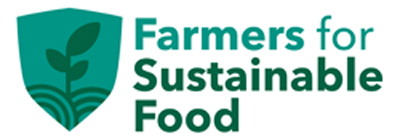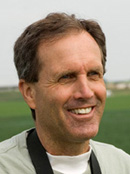
Today, the group, formed in 2016 as the Dairy Strong Sustainability Alliance, announced its transformation into Farmers for Sustainable Food, a nonprofit organization that provides resources, advocacy, support and empowerment for farmers who are innovating and demonstrating sustainable farming practices.

The Dairy Business Association and The Nature Conservancy originally organized the alliance in Wisconsin around the goal of helping dairy farmers make tangible improvements to the environment and other aspects of their farms. Since then, additional partners have come aboard representing various parts of the food supply chain, from individual farms and agricultural groups to food processors and food companies. And the group is facilitating greater opportunities to achieve environmental goals and promote progress in Wisconsin and elsewhere in the Upper Midwest.

“During the past year, especially, the organization’s work has become even more innovative, collaborative and widespread — for example, a number of projects aimed at measuring the impact of on-farm conservation practices. The work is growing beyond dairy and beyond Wisconsin as well, including with farmers and processors in Minnesota and South Dakota,” Brey said.
Steve Richter, agricultural strategies director at The Nature Conservancy in Wisconsin, said partnering five years ago with the now Farmers for Sustainable Food was a natural extension of his organization’s focus on projects at the farm level.

“Farmers for Sustainable Food’s connections with stakeholders throughout the agriculture supply chain, their strong relationships with farmers, and their ability to create well-structured and well-run projects have complemented our efforts to provide science, technical support and funding to help farmers be successful,” he said.
Brey said Farmers for Sustainable Food closely supports six farmer-led watershed conservation groups encompassing 211 farms, nearly 300,000 acres and 212,000 cows, hogs and other livestock. That support ranges from administration and communication to strategic services and grant applications.
The organization and its partners are also developing on-farm initiatives to test ways of measuring sustainability and documenting the impact of conservation practices, both environmentally and financially.

“It is important to Grande to be involved in these creative and progressive sustainability efforts,” Siegenthaler said. “We are proud of our partnership with Farmers for Sustainable Food and are committed to continuing to advance sustainability efforts across Wisconsin.”
Doornink, the group’s president, said a key strength of Farmers for Sustainable Food is the collective commitment throughout the supply chain.
“By working together, we open up resources and vastly expand our potential to make meaningful change,” Doornink said. “By being on the forefront of change, we can ensure a future that benefits the food system and our communities and ensures long-term prosperity.”





